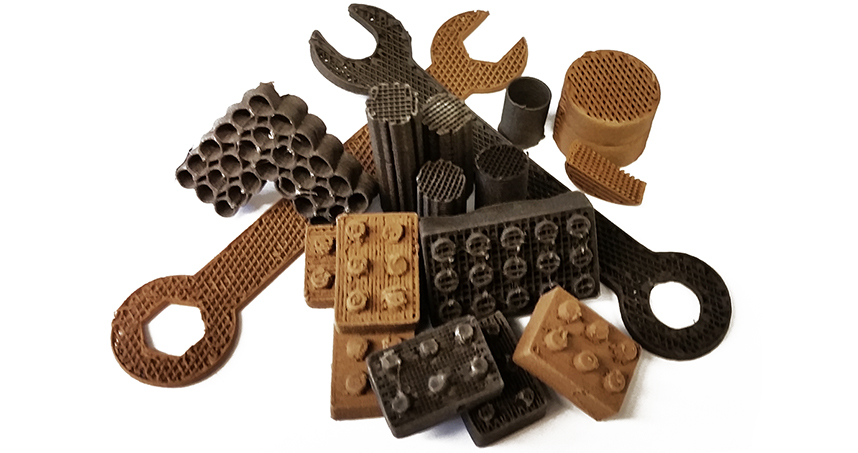More in
US team 3D prints with moon dust
Researchers at Northwestern University have developed a new method of 3D printing using material that simulates the dust found on the Moon and Mars.


(Credit: Northwestern)
The work, which has received backing from Google, took NASA-approved Lunar and Martian regolith simulant (LRS and MRS, respectively), and combined them with a series of simple solvents and a biopolymer. The resulting ‘paints’ were then 3D printed via a simple extrusion process, resulting in structures that were composed of 90 per cent simulant by weight. Published in Nature Scientific Reports, the research employs the teams ‘3D painting’ process, previously used to print hyperelastic ‘bone’, 3D graphene and carbon nanotubes.
"For places like other planets and moons, where resources are limited, people would need to use what is available on that planet in order to live," said Ramille
Shah, assistant professor of materials science and engineering at Northwestern's McCormick School of Engineering. "Our 3D paints really open up the ability to print different functional or structural objects to make habitats beyond Earth."
According to the Northwestern team, the ‘3D-painted’ material is flexible, elastic, and tough despite being composed of rigid micro-rocks, and has properties similar to rubber. The researchers claim this is the first time that rubber-like or soft materials have been manufactured using Lunar and Martian simulant, although other parties have been experimenting with 3D printing using LRS and MRS.
Register now to continue reading
Thanks for visiting The Engineer. You’ve now reached your monthly limit of news stories. Register for free to unlock unlimited access to all of our news coverage, as well as premium content including opinion, in-depth features and special reports.
Benefits of registering
-
In-depth insights and coverage of key emerging trends
-
Unrestricted access to special reports throughout the year
-
Daily technology news delivered straight to your inbox











Water Sector Talent Exodus Could Cripple The Sector
Maybe if things are essential for the running of a country and we want to pay a fair price we should be running these utilities on a not for profit...